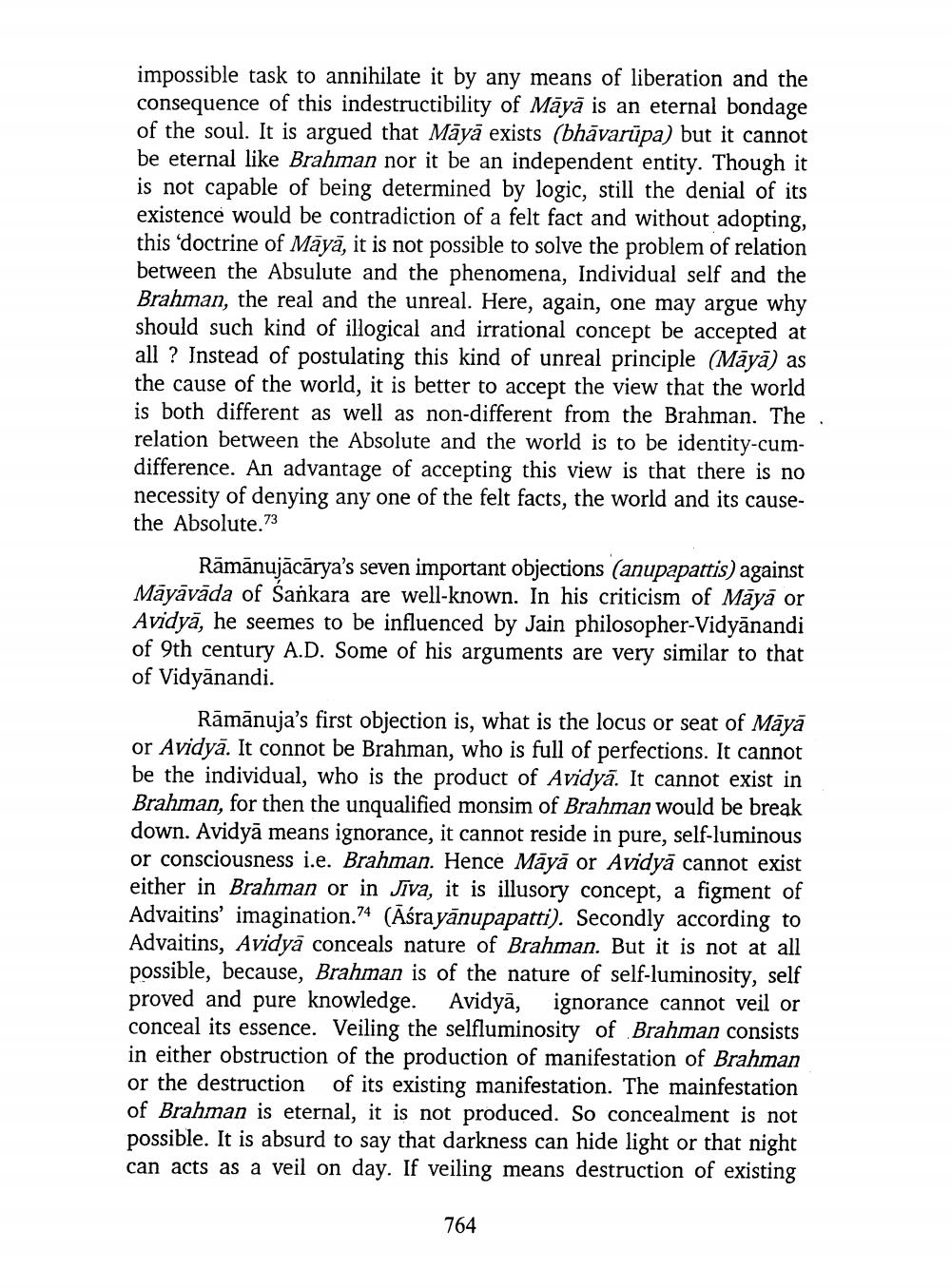________________
impossible task to annihilate it by any means of liberation and the consequence of this indestructibility of Māyā is an eternal bondage of the soul. It is argued that Māyā exists (bhāvarüpa) but it cannot be eternal like Brahman nor it be an independent entity. Though it is not capable of being determined by logic, still the denial of its existence would be contradiction of a felt fact and without adopting, this doctrine of Māyā, it is not possible to solve the problem of relation between the Absulute and the phenomena, Individual self and the Brahman, the real and the unreal. Here, again, one may argue why should such kind of illogical and irrational concept be accepted at all ? Instead of postulating this kind of unreal principle (Māyā) as the cause of the world, it is better to accept the view that the world is both different as well as non-different from the Brahman. The. relation between the Absolute and the world is to be identity-cumdifference. An advantage of accepting this view is that there is no necessity of denying any one of the felt facts, the world and its causethe Absolute.73
Rāmānujācārya's seven important objections (anupapattis) against Māyāvāda of Sankara are well-known. In his criticism of Māyā or Avidyā, he seemes to be influenced by Jain philosopher-Vidyānandi of 9th century A.D. Some of his arguments are very similar to that of Vidyānandi.
Rāmānuja's first objection is, what is the locus or seat of Maya or Avidyā. It connot be Brahman, who is full of perfections. It cannot be the individual, who is the product of Avidyā. It cannot exist in Brahman, for then the unqualified monsim of Brahman would be break down. Avidyā means ignorance, it cannot reside in pure, self-luminous or consciousness i.e. Brahman. Hence Māyā or Avidyā cannot exist either in Brahman or in Jīva, it is illusory concept, a figment of Advaitins' imagination.74 (Aśrayānupapatti). Secondly according to Advaitins, Avidyā conceals nature of Brahman. But it is not at all possible, because, Brahman is of the nature of self-luminosity, self proved and pure knowledge. Avidyā, ignorance cannot veil or conceal its essence. Veiling the selfluminosity of Brahman consists in either obstruction of the production of manifestation of Brahman or the destruction of its existing manifestation. The mainfestation of Brahman is eternal, it is not produced. So concealment is not possible. It is absurd to say that darkness can hide light or that night can acts as a veil on day. If veiling means destruction of existing
764




